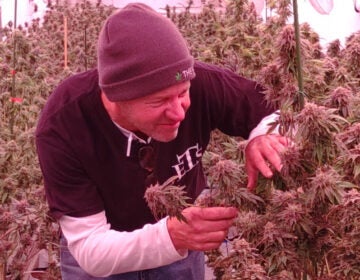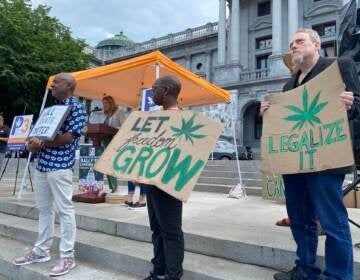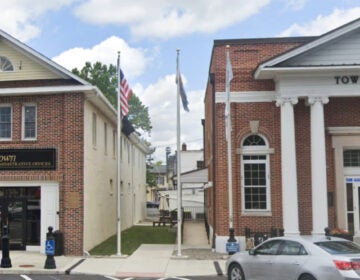‘It’s outrageous’: Medical marijuana provider has Delaware’s approval for new store, but gets blocked by Sussex County
The Office of Medical Marijuana approved the site off a rural highway in southern Delaware, but the plan got derailed by county law that advocates call a “total ban.”
Listen 2:43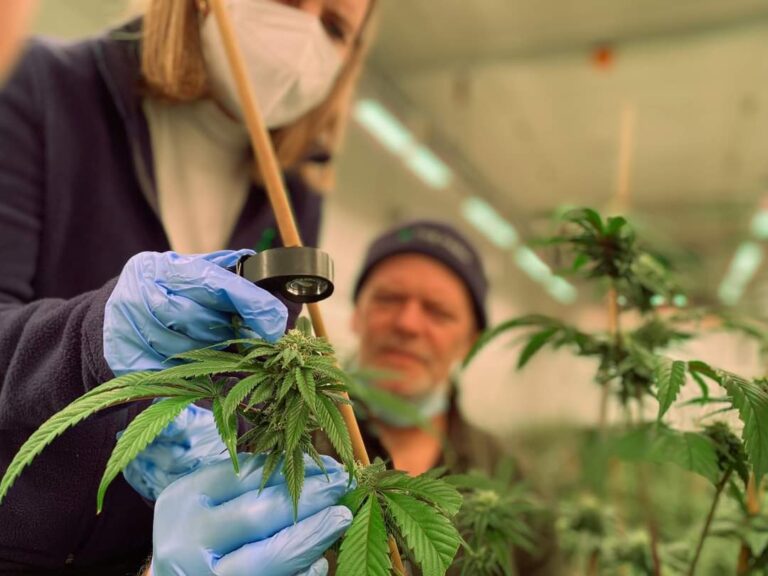
Workers tend to crops at one of the Farm's two indoor growing sites. (Courtesy of The Farm)
From Philly and the Pa. suburbs to South Jersey and Delaware, what would you like WHYY News to cover? Let us know!
This story was supported by a statehouse coverage grant from the Corporation for Public Broadcasting.
A year ago, after the state of Delaware said southeastern Sussex County could use a medical marijuana dispensary, Jen Stark began looking for a new location for The Farm.
Stark’s business has long operated dispensaries for marijuana patients and indoor growing sites in both Kent and New Castle counties, and manufactures edibles and other cannabis products in Kent — all under The Farm’s state license.
She found a suitable retail location in Sussex along a rural stretch of U.S. 113 near Frankford. In February, the state Office of Medical Marijuana approved the spot for “the location and expansion of the retail operations.”
Then Stark set about getting a permit from the county to retrofit the old HVAC supply store and sell cannabis to patients with medical marijuana cards. She also envisioned selling recreational cannabis there under a so-called conversion license that state lawmakers authorized in June.
Instead, Sussex shut down The Farm’s bid to open a store.
Despite the state’s assent, Stark’s bid collided last month with a new Sussex County law, passed in late May, that severely limits, if not eliminates, where marijuana retail businesses can be located.
A county administrator rejected The Farm’s proposed dispensary, ruling against the facility because it was not already “in existence” when the law took effect, according to the denial letter.
Now Stark is calling foul on Sussex and decrying what she calls its draconian approach to a strictly regulated industry the state has allowed for medical purposes since 2011.
Last year, state lawmakers legalized cannabis for recreational use for anyone age 21 and older.
“It’s outrageous,’’ Stark said. “We do everything by the book and we do everything right and they’re still slamming us. It’s also very frustrating that the public doesn’t understand our industry and people bash us as a business.”

State Rep. Ed Oeisnski, who sponsored the legalization and regulatory bills that passed the General Assembly last year, agrees.
The Newark Democrat said Sussex’s ordinance is hampering not only Stark’s company but an industry that a majority of residents support. He said the Sussex approach will only fuel illegal sales of weed.
“It’s frustrating because it’s a well-established business that has operated under all state requirements,” Osienski said of The Farm. “And now Sussex County is preventing them from expanding, creating more jobs and providing the public the option to buy a local safe product. And for those that are operating, it prevents competition, which keeps the cost of the product elevated.”
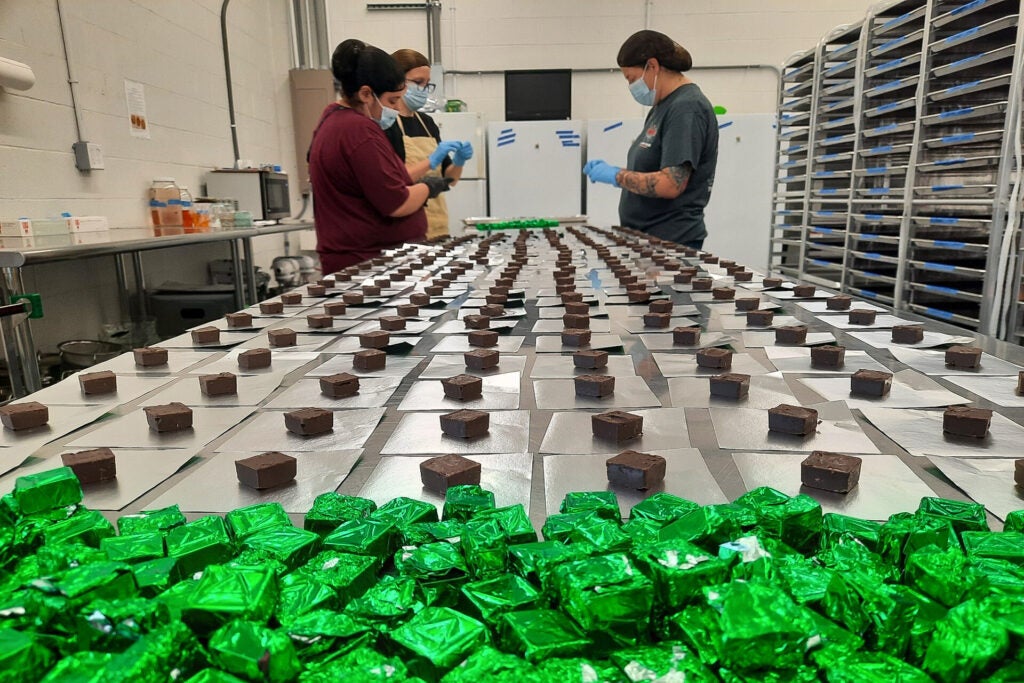
The Farm site rejected because store wasn’t already ‘in existence’
Stark says the ruling against The Farm was an unforeseen consequence of a new law passed by Sussex County Council, which had used a provision in the state law that allows counties to regulate the “time, place, manner, and number” of marijuana businesses.
The law stipulated that retail stores already “in existence’’ would be permitted as a “legal, nonconforming use.” The county currently has four medical dispensaries in operation.
Stark’s location could only get Sussex’s approval if the store had already been operating, Sussex zoning director Jamie Whitehouse ruled in his Oct. 24 rejection letter to Stark.
Whitehouse did approve another existing dispensary — the Lewes-area location of First State Compassion Center — which was already operating as a medical dispensary when the new law was passed, as a nonconforming use.
To get approved by Sussex now, The Farm’s site near Frankford would have to comply with even more restrictive aspects of the law.
County Council mandated that retail stores can only be in the C3 zoning district that’s reserved for heavy commercial uses and only encompasses 0.2 square miles of Sussex’s about 900 square miles of unincorporated land. The Farm’s location is zoned C1, a district that has hundreds of retail establishments.
But even if Stark or other prospective retailers find a usable site in the C3 zone, they could only get approval if the location isn’t within three miles of any municipality, church, school or substance abuse treatment center.
And that means nowhere, says the Delaware Cannabis Advocacy Network.
The nonprofit group’s lawyer analyzed the Sussex zoning map and concluded that the law creates a total ban on retail sites.
The whole situation simply confounds Stark.
“You can’t set up a store until you get a permit,’’ she said. “We’re in a Catch-22. Until the county gives us their approval, we’re not allowed to do anything.”
State senator aims to change state law to make Sussex law moot
While the effect of Sussex’s new law reverberates around Delaware and the marijuana industry, state Sen. Trey Paradee, a Dover Democrat, says he plans to introduce legislation early next year to make the county’s law moot.

Paradee said he also plans to target the provision in state law that allows municipalities to completely prohibit marijuana businesses, including growing, manufacturing and testing as well as retail, within town limits. Several of Sussex’s 25 municipalities, including the beach towns of Rehoboth, Dewey, Bethany, Fenwick Island and Lewes, plus outlying municipalities such as Seaford and Millsboro, have done just that.
Paradee said Sussex County and the towns with prohibitions “have used their own zoning laws to effectively make it impossible to put a new facility anywhere in Sussex County. And so the legislature is going to have no choice but to address this when we reconvene in January.”
Paradee said he already has a model for revising the state law to roll back ordinances that have “tried to effectively outlaw the safe, legal sale of recreational marijuana’’ in Delaware.
“In terms of where [marijuana] facilities can be located,’’ Paradee said, “it really should mirror how we treat liquor stores in this state.”
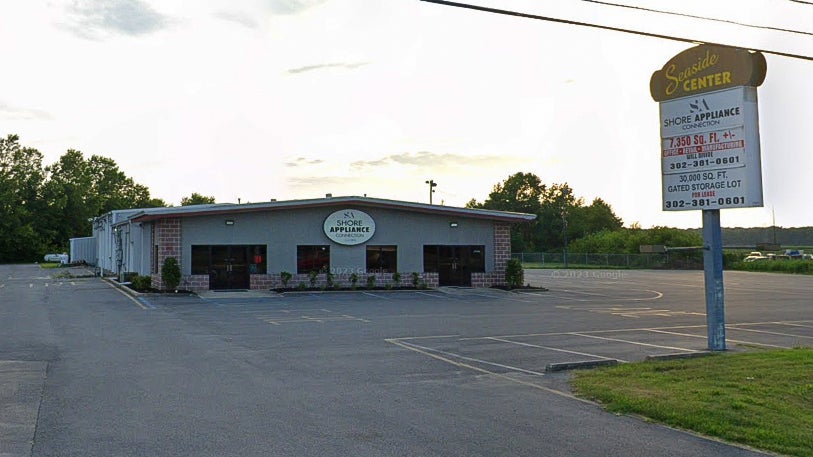
‘More people just need to know it’s ridiculous’
Unless the state law changes or there’s a successful court challenge, however, Sussex County’s law remains in full effect.
The Cannabis Advocacy Network has asked Attorney General Kathy Jennings to seek a court injunction to prevent Sussex from implementing the law. On Wednesday, Jennings’s office told the nonprofit group in a letter that it would “not file suit seeking the injunction” but suggested they file a lawsuit or seek “changes through the political process, at either the regulatory or legislative levels.”
While Stark’s issue isn’t with C3 zoning and the overlapping three-mile limit, she still feels blindsided by the county’s action.
She says she believed officials were going to grant her building a permit when they asked her to get clearances from the state Fire Marshal’s Office and Department of Transportation.
She procured those approvals and said she thought she could go into the Sussex administration building in Georgetown, pick up her permit, and start turning the store into a heavily secured facility to sell medical marijuana, and eventually, recreational marijuana.
Instead, her permit request was held while Whitehouse’s office investigated whether the location at 34164 DuPont Blvd. could qualify as a nonconforming use.
Chip Guy, the Sussex County spokesman, said Stark was mistaken in believing the county was awarding her a building permit.
“To be clear, the county DID NOT issue a building permit,’’ Guy said in an emailed response to questions about The Farm’s bid to put astore in Sussex.
Guy said an official “notified the applicant that the building plan review [tenant fit-out] had cleared initial steps. That is but one step that is part of the process in determining whether to issue a building permit in the first place.”
Guy said the county’s “due diligence’’ found that The Farm’s location simply did not qualify for approval.
Stark remains flabbergasted by the decision, saying she had relied on the state’s approval of the location as well as the state’s identified patient need for that area of Sussex.
“In my mind, when they approved that location and we started spending money and had rent to pay, and drawings put together, and had to start seeking other approvals and permits, it was an established use,” Stark said.
Robert Coupe, the state’s marijuana commissioner, said the state’s hands are tied as long as the current state law remains in effect.
“There’s nothing for me to do. They have to fight that fight,’’ Coupe said of Stark.
Coupe, whose office will soon issue 30 licenses for retail recreational marijuana stores statewide, added that Sussex’s “three-mile buffer, as it currently exists, definitely presents challenges for our selected applicants” in Sussex, where 10 retail licenses will be granted.
“If it appears that it will be difficult for them to find areas to operate, probably a focus for them will be on specific towns that have said they will allow operations,” he said.
Guy, who has not agreed to do any interviews on the Sussex law, wrote last month that he disagrees with the assertion that no parcels exist in unincorporated Sussex for retail stores. Yet he would not identify any permitted sites, or consent to a request by WHYY News to analyze the zoning map to find any.
Stark said she has spoken to a lawyer about her options, and if her efforts fail, is also considering whether to find a site elsewhere in Sussex, perhaps within the town limits of Frankford, which hasn’t banned cannabis stores.
“It’s ridiculous,’’ Stark said of her company’s predicament in Sussex. “And more people just need to know it’s ridiculous.”

Get daily updates from WHYY News!
WHYY is your source for fact-based, in-depth journalism and information. As a nonprofit organization, we rely on financial support from readers like you. Please give today.



